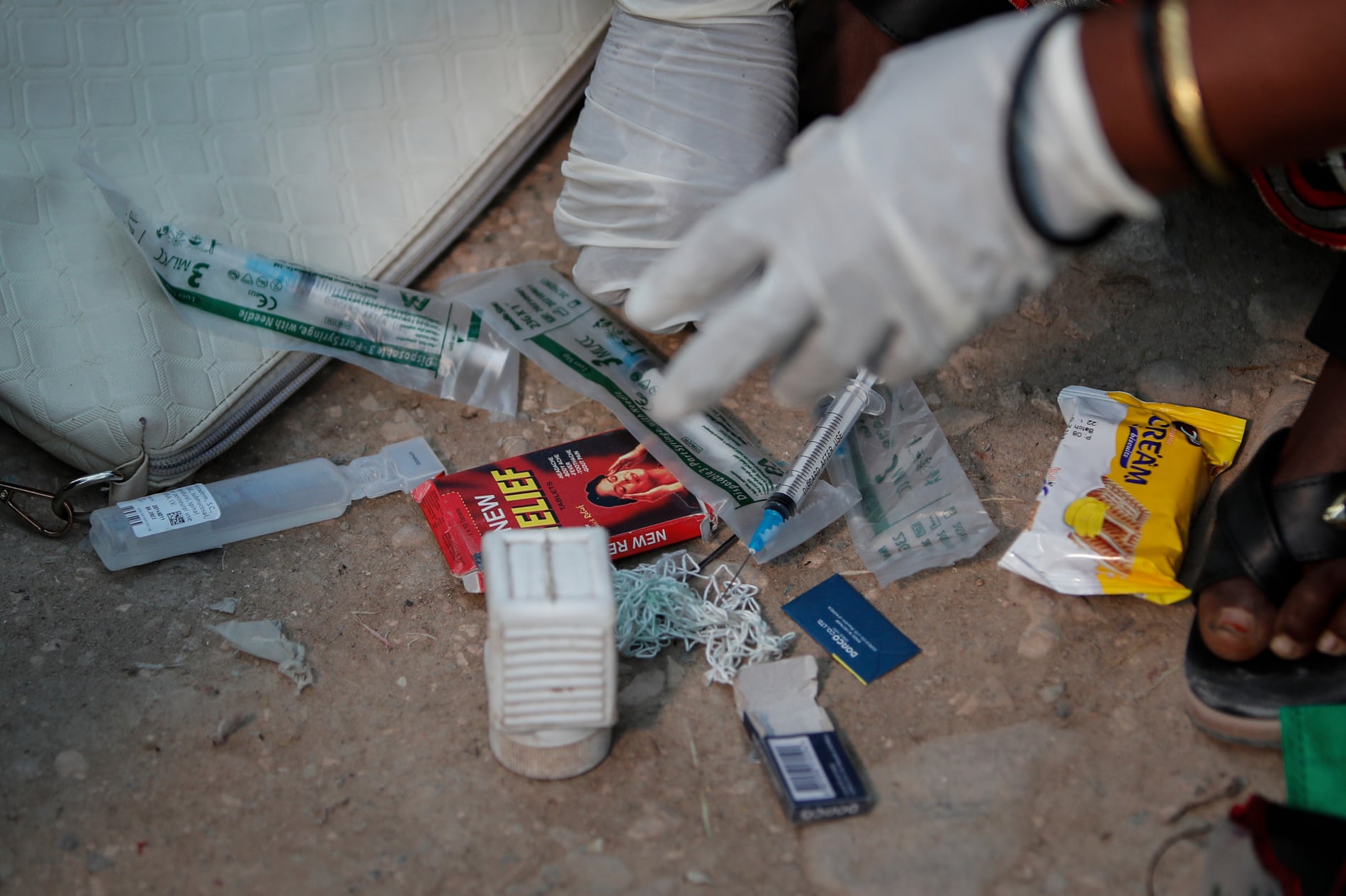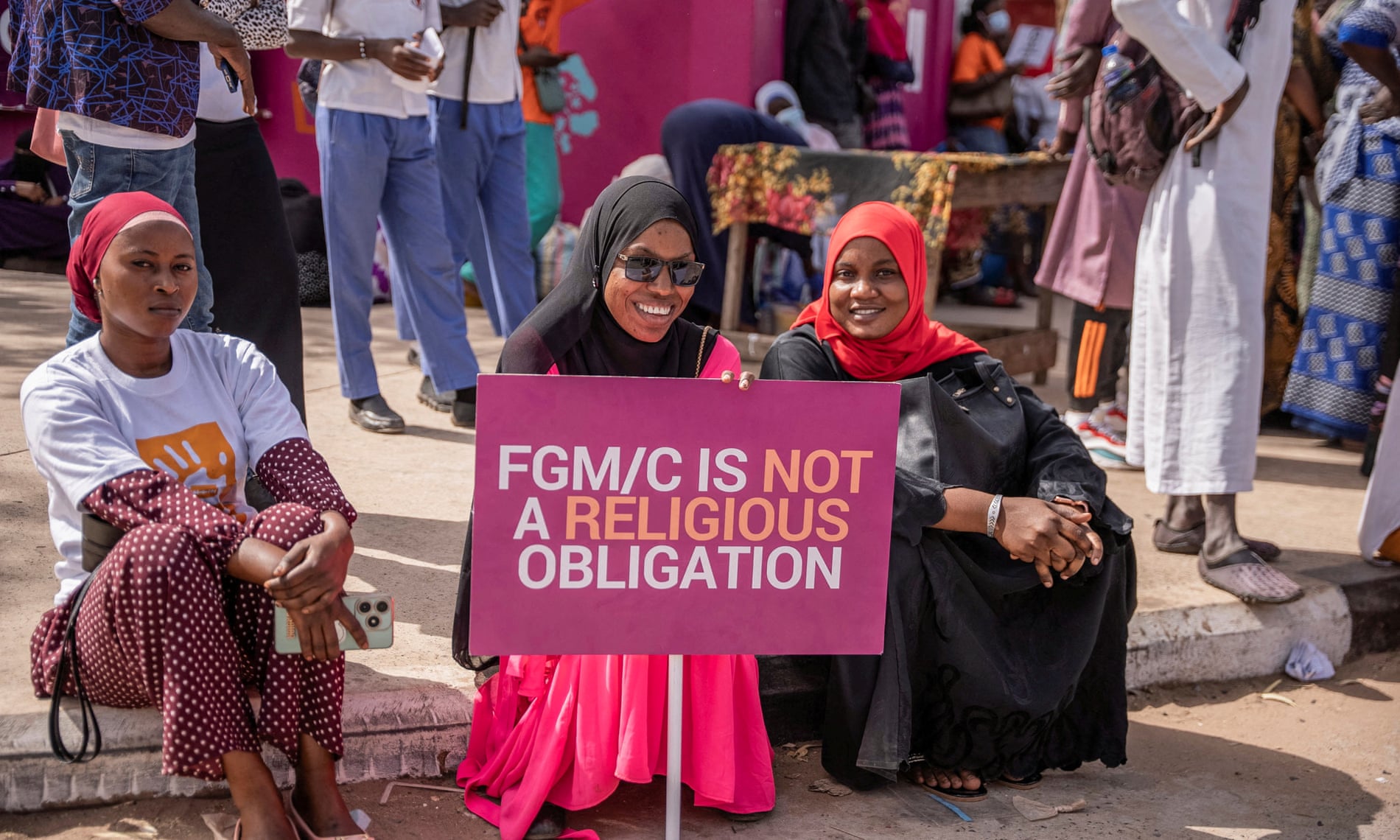- Joined
- Jan 17, 2010
- Messages
- 4,522
- Reaction score
- 5,489
Progress to prevent female genital mutilation needs to be ‘27 times faster’, says UN

The number of girls and women who have undergone female genital mutilation (FGM) has increased by 15% in the past eight years, according to new data.
Figures released by the UN children’s agency, Unicef, show that more than 230 million girls and women alive today have undergone FGM, compared with 200 million in 2016. The trend is towards girls being cut at a younger age, said Unicef executive director Catherine Russell.
“Female genital mutilation harms girls’ bodies, dims their futures, and endangers their lives,” she said. “We’re also seeing a worrying trend that more girls are subjected to the practice at younger ages, many before their fifth birthday. That further reduces the window to intervene. We need to strengthen the efforts of ending this harmful practice.”
Work to eliminate the practice by the UN’s target date of 2030 would need to be happening 27 times faster than it is now, Unicef said. FGM is not becoming more common globally, but more girls are being born in FGM-practising countries in comparison with the rest of the world.
FGM involves the partial or total removal of the external female genitalia and is a violation of human rights. In 2012 the UN passed a resolution to ban it.
About 60% of FGM cases – 144m – happen in Africa, followed by 80m in Asia and 6m in the Middle East.
Somalia, Guinea, Djibouti, Egypt, Sudan and Mali have the highest prevalence rates. They are also countries dealing with other urgent issues, such as conflict, climate shocks and food insecurity, which make it harder to deliver programmes to support girls, said Unicef.

Many African countries have experienced a steady decline in the practice over the past few decades, but overall progress has stalled or been reversed.
In the Gambia, a bill to repeal its ban on FGM was tabled in parliament this week, embroiling the country in debate over rights, religion and culture. In Sierra Leone, the practice remains legal despite growing pressure for it to be criminalised. Three girls died during cutting ceremonies in the west African country earlier this year.
Claudia Cappa, the Unicef report’s lead author, said: “Where the practice is concentrated, the majority of women and men are saying that they want the practice to stop … but this growing opposition is not matched with a change in [behaviour].”

FGM practitioner Safia Ibrahim displays her cutting tools, in Hargeisa, Somaliland. Photograph: Brian Inganga/AP
Kenya, which criminalised the practice in 2011, has witnessed a steady decline in FGM, but activists remain concerned about progress.
Among the Somali community in Kenya’s north-east, which is experiencing the brunt of the climate crisis, anti-FGM enforcement is poor and progress has stalled. Reports have also emerged recently of resurgences in the central Kenya region of Murang’a, where women over 30 are opting to undergo the cut as a “return to culture”.
A move towards the medicalisation of the practice – where it is carried out by health practitioners rather than traditional cutters in hospitals or in homes – makes it harder to detect, say campaigners.
Esnahs Nyaramba, an anti-FGM activist from the Kisii region, in western Kenya, said she gets fewer calls for rescue than she did a decade ago. Tips from community members that the cut is taking place, which helped her mobilise local authorities to intervene, are less frequent because the public ceremonies that used to accompany FGM have been abandoned, even if the procedure has not.
“In Kisii, it’s difficult to tell the trend with certainty because when the kid is cut, nobody usually knows these days except the mum and the cutter,” said Nyaramba.
Unicef, which published its FGM data on Friday, said more families are opting to have their daughters cut at an earlier age – sometimes at two years old to reduce the physical harm and psychological trauma endured by older girls. It is a trend that needed to be addressed, said the agency.
Cappa said: “The window of opportunity [to prevent it] has reduced … so we need to take action at a higher level than before.”
Nimco Ali, the chief executive of the Five Foundation, the global partnership to end FGM, said grassroots organisations fighting to end the practice needed more funding.
“As a survivor, I know all about the devastating consequences that FGM has on women and girls,” said Ali.
“The new estimate showing a huge increase of 30 million more affected is not just shocking but personally devastating, especially when we know what works and we could have prevented this from happening.”
https://www.theguardian.com/global-...omen-and-girls-being-cut-new-fgm-data-reveals
The number of girls and women who have undergone female genital mutilation (FGM) has increased by 15% in the past eight years, according to new data.
Figures released by the UN children’s agency, Unicef, show that more than 230 million girls and women alive today have undergone FGM, compared with 200 million in 2016. The trend is towards girls being cut at a younger age, said Unicef executive director Catherine Russell.
“Female genital mutilation harms girls’ bodies, dims their futures, and endangers their lives,” she said. “We’re also seeing a worrying trend that more girls are subjected to the practice at younger ages, many before their fifth birthday. That further reduces the window to intervene. We need to strengthen the efforts of ending this harmful practice.”
Work to eliminate the practice by the UN’s target date of 2030 would need to be happening 27 times faster than it is now, Unicef said. FGM is not becoming more common globally, but more girls are being born in FGM-practising countries in comparison with the rest of the world.
FGM involves the partial or total removal of the external female genitalia and is a violation of human rights. In 2012 the UN passed a resolution to ban it.
About 60% of FGM cases – 144m – happen in Africa, followed by 80m in Asia and 6m in the Middle East.
Somalia, Guinea, Djibouti, Egypt, Sudan and Mali have the highest prevalence rates. They are also countries dealing with other urgent issues, such as conflict, climate shocks and food insecurity, which make it harder to deliver programmes to support girls, said Unicef.
Many African countries have experienced a steady decline in the practice over the past few decades, but overall progress has stalled or been reversed.
In the Gambia, a bill to repeal its ban on FGM was tabled in parliament this week, embroiling the country in debate over rights, religion and culture. In Sierra Leone, the practice remains legal despite growing pressure for it to be criminalised. Three girls died during cutting ceremonies in the west African country earlier this year.
Claudia Cappa, the Unicef report’s lead author, said: “Where the practice is concentrated, the majority of women and men are saying that they want the practice to stop … but this growing opposition is not matched with a change in [behaviour].”

FGM practitioner Safia Ibrahim displays her cutting tools, in Hargeisa, Somaliland. Photograph: Brian Inganga/AP
Kenya, which criminalised the practice in 2011, has witnessed a steady decline in FGM, but activists remain concerned about progress.
Among the Somali community in Kenya’s north-east, which is experiencing the brunt of the climate crisis, anti-FGM enforcement is poor and progress has stalled. Reports have also emerged recently of resurgences in the central Kenya region of Murang’a, where women over 30 are opting to undergo the cut as a “return to culture”.
A move towards the medicalisation of the practice – where it is carried out by health practitioners rather than traditional cutters in hospitals or in homes – makes it harder to detect, say campaigners.
Esnahs Nyaramba, an anti-FGM activist from the Kisii region, in western Kenya, said she gets fewer calls for rescue than she did a decade ago. Tips from community members that the cut is taking place, which helped her mobilise local authorities to intervene, are less frequent because the public ceremonies that used to accompany FGM have been abandoned, even if the procedure has not.
“In Kisii, it’s difficult to tell the trend with certainty because when the kid is cut, nobody usually knows these days except the mum and the cutter,” said Nyaramba.
Unicef, which published its FGM data on Friday, said more families are opting to have their daughters cut at an earlier age – sometimes at two years old to reduce the physical harm and psychological trauma endured by older girls. It is a trend that needed to be addressed, said the agency.
Cappa said: “The window of opportunity [to prevent it] has reduced … so we need to take action at a higher level than before.”
Nimco Ali, the chief executive of the Five Foundation, the global partnership to end FGM, said grassroots organisations fighting to end the practice needed more funding.
“As a survivor, I know all about the devastating consequences that FGM has on women and girls,” said Ali.
“The new estimate showing a huge increase of 30 million more affected is not just shocking but personally devastating, especially when we know what works and we could have prevented this from happening.”
https://www.theguardian.com/global-...omen-and-girls-being-cut-new-fgm-data-reveals



